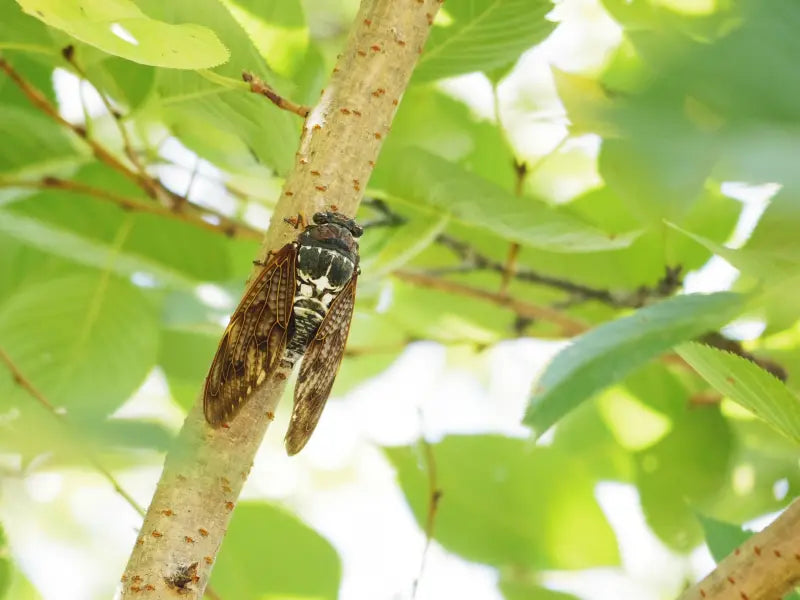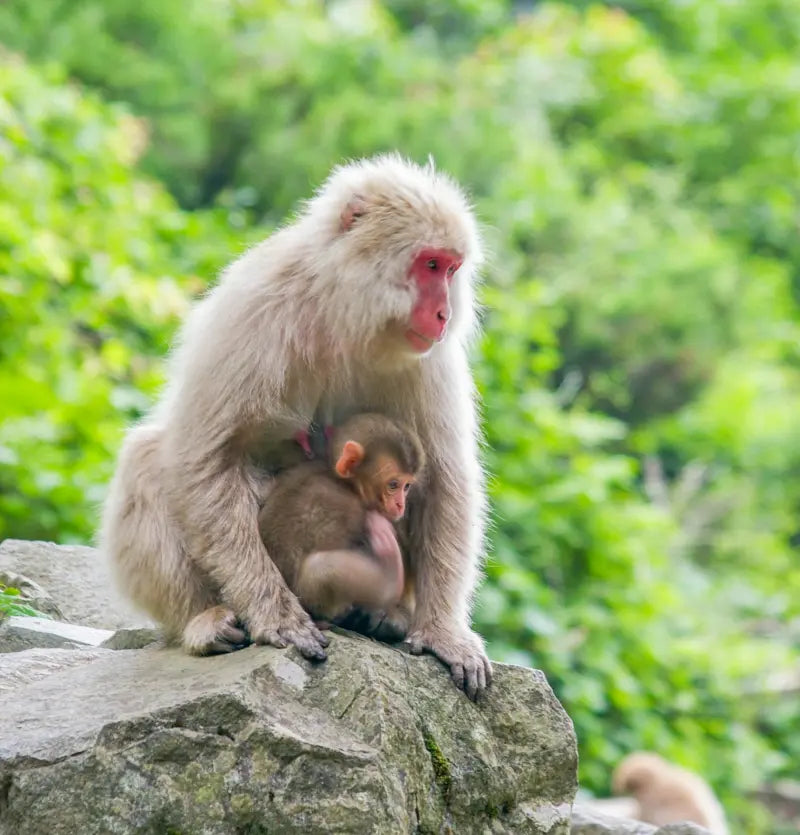
When Even the Cicadas Go Silent – What the Sounds (and Silences) of Summer in Japan Tell Us
Japan's Summers Are Getting Hotter Than Ever
In recent years, summers in Japan have become extremely hot. In Tokyo and the surrounding urban areas, temperatures often rise above 38°C (100°F). Combined with high humidity and heat radiating from concrete and asphalt, the perceived temperature feels even higher.
Shizuoka, where Ikedaya's head office is located, is no exception. In fact, it occasionally records the highest temperatures in the country. While known for its scenic coastline and mountains, Shizuoka too is no stranger to the intensity of the Japanese summer.
Many visitors to Japan are surprised by just how stifling the summer heat can be.
The Sound of Summer: Cicadas
 One of the most iconic sounds of summer in Japan is the cry of cicadas. From morning to evening, they can be heard chirping from trees in shrines, parks, and along city streets—creating a backdrop that is deeply tied to the season.
One of the most iconic sounds of summer in Japan is the cry of cicadas. From morning to evening, they can be heard chirping from trees in shrines, parks, and along city streets—creating a backdrop that is deeply tied to the season.
Among them, the mass chorus of minmin-zemi or abura-zemi in parks is not typically thought of as annoying. Rather, it adds to the energy and liveliness of summer, becoming part of the atmosphere itself.
However, when a single cicada lands on your home's exterior wall and continues to chirp loudly at close range, it can feel quite intrusive. It's interesting how the same sound, depending on context and proximity, can be perceived so differently.
Do Cicadas Really Stop Singing When It’s Too Hot?
In recent years, it's become common to hear people say, “It’s so hot, even the cicadas aren’t singing.” Surprisingly, this isn’t just an exaggeration—it’s based in fact.
Cicadas are most active at temperatures between 25°C and 33°C (77–91°F). When the temperature rises beyond that, they tend to slow down, seeking shade and becoming quieter. So when cicadas go silent, it can be a sign that the heat has reached dangerous levels for both insects and humans.
Not All Cicada Sounds Are the Same
Cicada sounds vary greatly depending on the species, time of day, and environment. Japanese people often describe these calls using onomatopoeia—words that mimic actual sounds.
Daytime cicadas like the abura-zemi and minmin-zemi produce loud, continuous calls. The abura-zemi makes a sharp, rasping sound described as “ji-ji-ji-ji,” like an electric buzz. The minmin-zemi is known for its “meen-meen-meen” call—high-pitched, metallic, and echoing in the heat of the day. These cries are intense and energetic, matching the height of summer.
In contrast, the higurashi cicada sings in the early morning or at dusk. Its voice is softer, more delicate—described as “kana-kana-kana.” This sound is often likened to an echoing chime, with a haunting, nostalgic quality that lingers in the fading light.
One of Japan’s most famous haiku captures this mood:
閑さや 岩にしみ入る 蝉の声
Shizukesa ya / Iwa ni shimiiru / Semi no koe
Such stillness— / The cries of the cicadas / sink into the rocks.
— Matsuo Bashō
This verse, written by Bashō during a visit to the remote mountain temple of Yamadera in Yamagata Prefecture, expresses a profound natural silence. The cicada’s voice is not disruptive, but rather blends into the quiet, enhancing it.
Many scholars believe the cicada Bashō refers to is likely the higurashi, not the louder urban species. This kind of cry, softly resonating in a silent mountain setting, reflects a unique Japanese sensitivity to sound—where even the faintest natural voice becomes part of the emotional landscape.
In this way, the Japanese don’t simply hear “noise” in cicada cries. Depending on the type and setting, these sounds can express everything from the vitality of summer to the gentle passing of time.
Staying Safe While Enjoying Japan’s Summer
 Of course, poetic sentiments aside, modern Japanese summers can be dangerously hot. If you’re traveling during a heat wave, be sure to stay hydrated, wear a hat or carry a sunshade, and take breaks in air-conditioned spaces when needed. Cooling towels and portable fans can also help you cope with the heat.
Of course, poetic sentiments aside, modern Japanese summers can be dangerously hot. If you’re traveling during a heat wave, be sure to stay hydrated, wear a hat or carry a sunshade, and take breaks in air-conditioned spaces when needed. Cooling towels and portable fans can also help you cope with the heat.
And if you notice that even the cicadas have gone silent—it might be time to do the same. With proper precautions, you can stay safe and enjoy the many layers of Japan’s summer, from its sounds to its silences.



